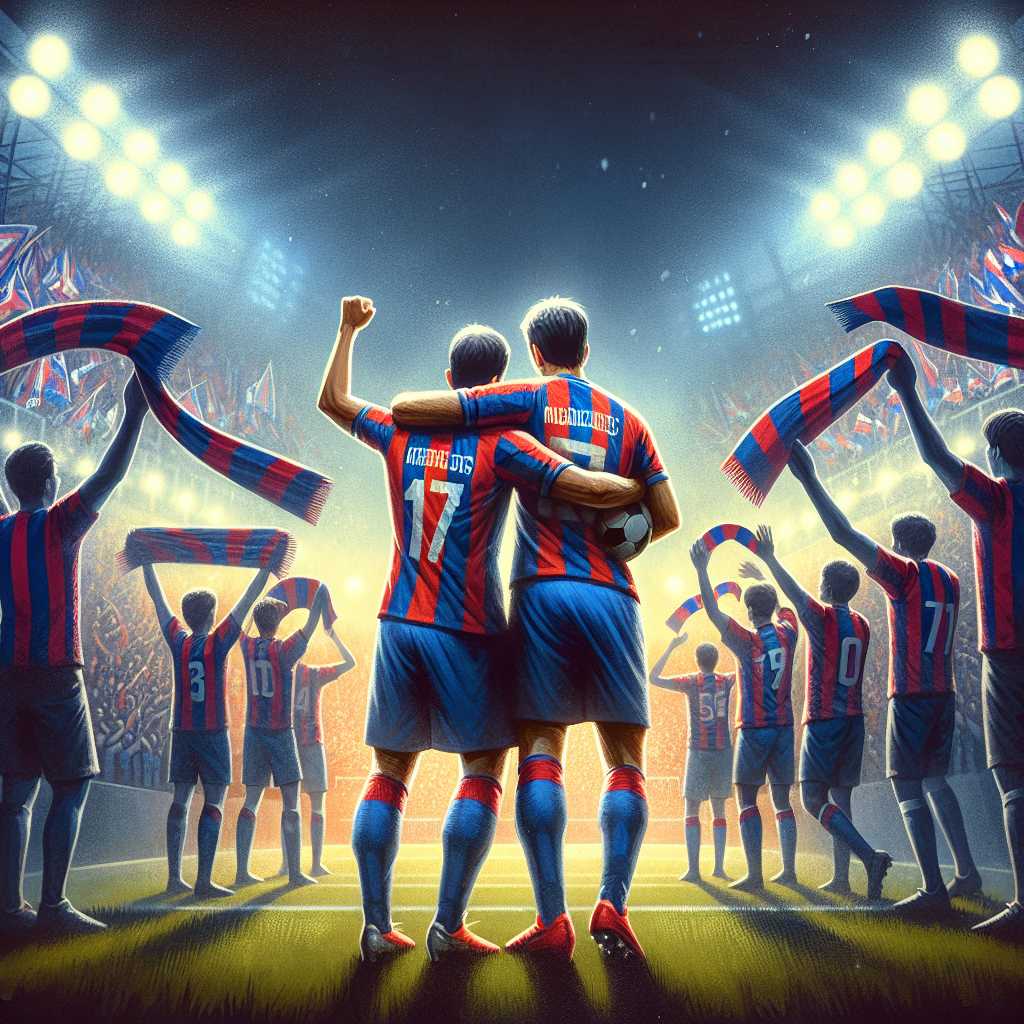The Evolution and Global Impact of FC Barcelona: A Comprehensive Overview
FC Barcelona, known colloquially as Barça, is more than just a football club for its supporters—it epitomizes a rich tradition, sporting excellence, and regional identity intertwined with Catalonian pride. This article will explore the history of FC Barcelona, its sporting philosophy, economic impact, social responsibility initiatives, and global influence.
History: The Foundation and Growth of FC Barcelona
FC Barcelona was founded on November 29, 1899, by a group of Swiss, English, and Catalan footballers led by Joan Gamper. The club initially participated in local competitions but soon established itself as one of the leading teams in Spain. Barça has since become a symbol of Catalan culture and Catalanism, which is reflected in its motto ‘Més que un club’ (More than a club).
Throughout its history, FC Barcelona has experienced numerous successes, including winning the prestigious UEFA Champions League multiple times and securing countless La Liga titles. Legends such as Johan Cruyff, Lionel Messi, Xavi Hernandez, and Andres Iniesta have donned the iconic Blaugrana stripes—a shirt that symbolizes a legacy of creative and attractive football.
Philosophy and Playing Style: The Total Football Influence
From Johann Cruyff’s tenure as both player and coach, Barça has espoused a philosophy that transcends the typical approach to football. Influenced early on by the Dutch concept of Total Football, Barça emphasizes skillful ball control, dynamic positional interchange among players, and a psyche that insists on domination through possession.
This philosophy matured under managers like Frank Rijkaard, Pep Guardiola, and others who implemented what became known globally as tiki-taka—a style characterized by short passing and movement, spatial analysis, maintaining possession, and the utilization of the full width of the pitch to stretch opposition defenses.
Economic Impact: Revenue Generation and Investments
Financially, FC Barcelona is one of the most successful football clubs globally. With significant revenue streams from match days, broadcast rights, merchandise sales, and player transfers, Barça maintains its competitiveness on the world stage. The club has been at the forefront of establishing lucrative sponsorship deals that bolster its financial prowess—a key factor when competing for top talent.
Investments outside of football—such as in other sports teams within the club’s structure like basketball and handball—extend its economic reach. Furthermore, projects like the Espai Barça—a plan to revamp Camp Nou and adjacent facilities—are expected to enhance its global brand whilst amplifying revenue opportunities.
Social Responsibility: More Than A Club
True to its ethos ‘Més que un club’, Barça expresses strong social commitment through its charity arm – the FC Barcelona Foundation. The organization works to instill positive values through sport across various social initiatives focused on helping children and young people around the world.
Additionally, the club’s youth academy La Masia is recognized not just for churning out skilled athletes but for focusing on character development, teaching life skills alongside football excellence—a testament to Barça’s belief in sport as a vehicle for positive growth.
Global Influence: Fans Around the World
Barça’s footprint is felt worldwide with millions of followers. Fans are drawn to its style of play and overarching philosophical approach to football—symbolic of beauty in sportsmanship that rejects the win-at-all-costs approach seen in some competitive arenas.
The burgeoning international fanbase is catered for by official supporters’ clubs known as ‘Penyes,’ plentiful merchandising outlets globally, language-diverse social media operations, and strategic pre-season tours that take Barça’s star players to new audiences.
Successes: A Record of Achievement
The history of FC Barcelona is punctuated with memorable moments that include multiple UEFA Champions League triumphs, league titles aplenty—the most in La Liga history at the time of writing—and numerous domestic cup successes.
Key victories in El Clasico—the storied rivalry against Real Madrid—and other critical fixtures have helped maintain Barça’s status as an iconic force within football.
Challenges: Overcoming Obstacles
Barça has also had its fair share of challenges—from facing financial distress signaled by substantial debts revealed in 2021 to dealing with management scandals that brought to question standards of governance at the club.
Managing transitions post the era of towering figures like Messi remain part of contemporary quests—to uphold not just competitive effectiveness but also essence respects heritage ethos which forms layer upon layer throughout its long existence.
Notes
Image description: Players in iconic red and blue striped jerseys embrace under stadium lights—the unmistakable kit of FC Barcelona—as thousands of fans raise scarves in the stands behind them showing harmony between players and supporters synonymous with Barça’s ethos.
OYvdq

